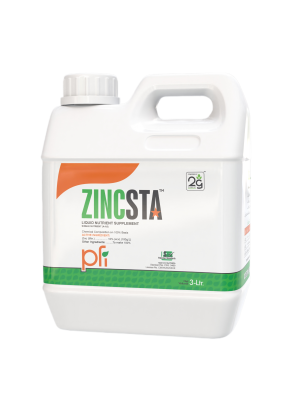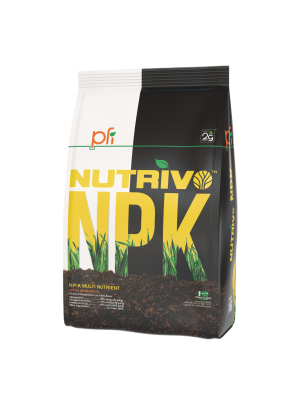Description
ZINCHE Chelated zinc is widely used in agriculture to improve crop growth and yield. Zinc is an essential micronutrient for plants, playing a vital role in various enzymatic reactions, protein synthesis, and growth regulation. However, in many soils, especially those that are alkaline or calcareous, zinc may become unavailable to plants due to binding with other soil components. To address this issue, zinc can be applied in a chelated form, which increases its solubility and bioavailability.
Key Features & Benefits:
- Chelated Form: Contains 5% zinc in a chelated form, enhancing its stability and availability to plants, particularly in various soil conditions.
- High Solubility: The chelation process ensures that the zinc remains soluble, facilitating easier uptake by plants compared to non-chelated forms.
- Improved Nutrient Uptake: The chelated form enhances the absorption and mobility of zinc within the plant, allowing it to reach different tissues more effectively.
- Liquid Concentrate: Available in liquid form, making it easy to mix and apply through various methods such as foliar spraying, fertigation, or soil drenching.
- Non-Phytotoxic: Safe for use on a wide range of crops when applied according to recommended guidelines, minimizing the risk of crop damage.
- Compatibility: Can be mixed with most fertilizers and pesticides, providing flexibility in application without adverse reactions.
- Cost-Effective: Typically requires smaller quantities compared to granular zinc sources, making it economical for larger applications.
- Prevention of Zinc Deficiency: Effective in preventing and correcting zinc deficiency in crops, which can manifest as leaf chlorosis, stunted growth, and poor fruiting.
- Enhanced Plant Growth and Development: Zinc is essential for various physiological processes, including enzyme activation, protein synthesis, and hormone production, contributing to healthier plants.
- Improved Yield and Quality: Regular application of chelated zinc can lead to increased crop yield and improved quality of produce, such as better size and flavor in fruits and vegetables.
- Increased Resistance to Stress: Adequate zinc levels help plants cope better with environmental stresses such as drought, disease, and extreme temperatures, leading to more resilient crops.
- Optimized Nutrient Utilization:Zinc plays a crucial role in the efficient use of other nutrients, particularly nitrogen and phosphorus, enhancing overall nutrient efficiency in the soil.
- Versatile Application: Suitable for a wide range of crops, including cereals, fruits, vegetables, and ornamentals, making it a valuable addition to any crop management program.





